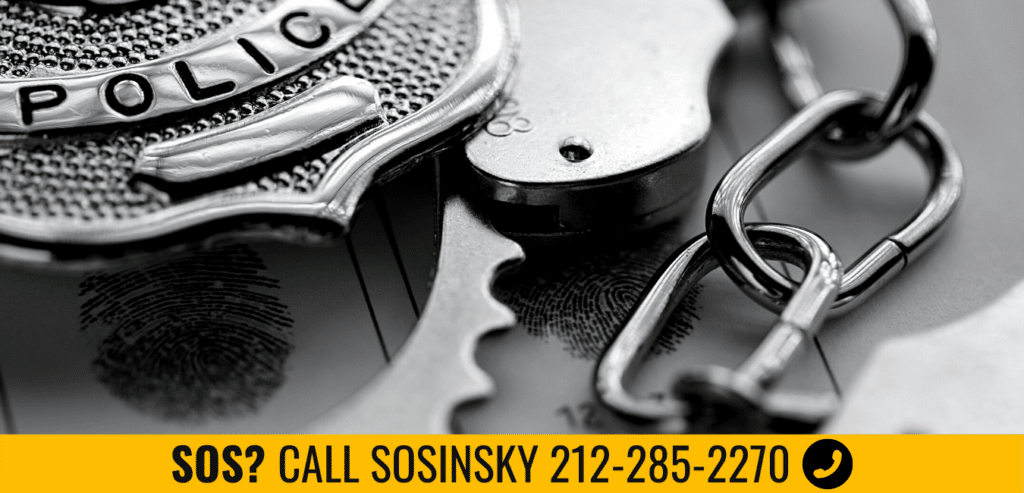NYC Tax Fraud Lawyer
Federal Tax Fraud Lawyer In New York City
Federal tax cases can be pursued either as civil or criminal matters. While civil cases can lead to substantial penalties and fines, a conviction in a criminal case can result in a lengthy prison sentence. Generally, the United States Attorney’s Office brings federal criminal tax prosecutions using one or a combination of the following statutes: 1) Tax Evasion (26 U.S.C. §7201), 2) Willful Failure to File a Return, Supply Information, or Pay a Tax (26 U.S.C. §7203), or 3) Tax Fraud (26 U.S.C. §7206).
Aside from the potential for imprisonment, a conviction for a criminal tax offense is likely to be considered both a crime of moral turpitude and an aggravated felony. This carries various negative consequences, including the risk of deportation and the loss of professional licenses or employment opportunities. It is crucial, therefore, to promptly seek the assistance of a skilled NYC federal tax fraud lawyer if you find yourself under investigation. At Sosinsky Law, our team of federal crimes attorneys can help you construct a strong defense and navigate the complexities of criminal court proceedings.
Understanding Federal Tax Fraud Charges
Under 26 U.S.C. §7201, anyone deliberately attempting to evade or defeat federal taxes may face imprisonment of up to five years and fines of up to $100,000, or $500,000 for corporate defendants. To secure a conviction, the government must establish three elements beyond a reasonable doubt: (1) willfulness on the part of the defendant, (2) the existence of a tax deficiency, and (3) an intentional act constituting tax evasion or attempted evasion (United States v. Citron, 783 F.2d 307, 312 (2d Cir. 1986)).
This statute, known as the “capstone” of the entire system of sanctions aimed at ensuring compliance with income tax laws, is intentionally broad (Spies v. United States, 317 U.S. 492, 497 (1943)).
Additionally, under 26 U.S.C. § 7203, failure to pay taxes, file returns, keep records, or provide information to the IRS, as required by federal law, is a misdemeanor punishable by imprisonment of up to one year and fines of up to $25,000, or $100,000 for corporate defendants. If the willful conduct involves cash transactions exceeding $10,000, the violation becomes a felony carrying a maximum sentence of five years. The government need only prove two elements beyond a reasonable doubt: willfulness and failure to pay a tax due (United States v. Coppola, 425 F.2d 660, 661 (2d Cir. 1969)).
Moreover, 26 U.S.C. §7206 states that willfully filing a false tax return, statement, or document under penalty of perjury, or aiding in the creation of fraudulent or false tax documents, can result in imprisonment of up to three years and fines of up to $100,000, or $500,000 for corporate defendants. To secure a conviction under § 7206, the government must prove four elements beyond a reasonable doubt: (1) the defendant filed a federal tax return that they verified as true, (2) the tax return was false regarding a material matter, (3) the defendant willfully and knowingly signed the false return, and (4) the return contained a written declaration made under the penalty of perjury (United States v. Pirro, 212 F.3d 86, 89 (2d Cir. 2000)). It is important to note that this statute only applies to materially false statements that hinder the IRS in monitoring and verifying tax liability (Id.).

Conspiracy To Commit Tax Fraud
In addition to the aforementioned tax crimes, there is another federal offense that can be imposed in conjunction with such charges: conspiracy to commit a tax crime. The crime of conspiracy is defined under 18 U.S.C. §371. When two or more parties agree to collaborate in order to achieve an illegal outcome, they can be charged with conspiracy. In the context of tax crimes, an individual may face charges of conspiracy to commit tax fraud if they knowingly conspire with another person to engage in tax fraud and take active steps to further this illicit act, or if the person they are conspiring with takes such steps. Should you require assistance in assessing the applicability of these charges to a specific case, a tax fraud attorney in NYC can provide guidance.
Signs The Federal Government Looks For To Identify Tax Fraud
A mere error on one’s taxes is rarely enough to warrant a tax fraud charge. Typically, such charges are only leveled when a person is knowingly attempting to defraud the government. There are several indicators that the federal government may employ to detect fraudulent activity.
Some red flags may include the failure to submit annual tax returns estimated income tax payments for self-employed individuals, or the omission of complete earnings on a tax return. Engaging in such actions could potentially trigger a federal audit by the Internal Revenue Service. In such cases, it is crucial for individuals to seek the assistance of a tax fraud lawyer in New York to safeguard their rights.
Contact Our NYC Federal Tax Fraud Lawyer Now
When confronted with charges of this nature, the ramifications can be grave. Therefore, if you find yourself accused of this offense, it is imperative that you consult with an NYC federal tax fraud lawyer to explore your legal alternatives. To acquire further insight into these allegations and to construct a robust defense, we encourage you to reach out to Sosinsky Law now for a free consultation to learn more about how we can help.
